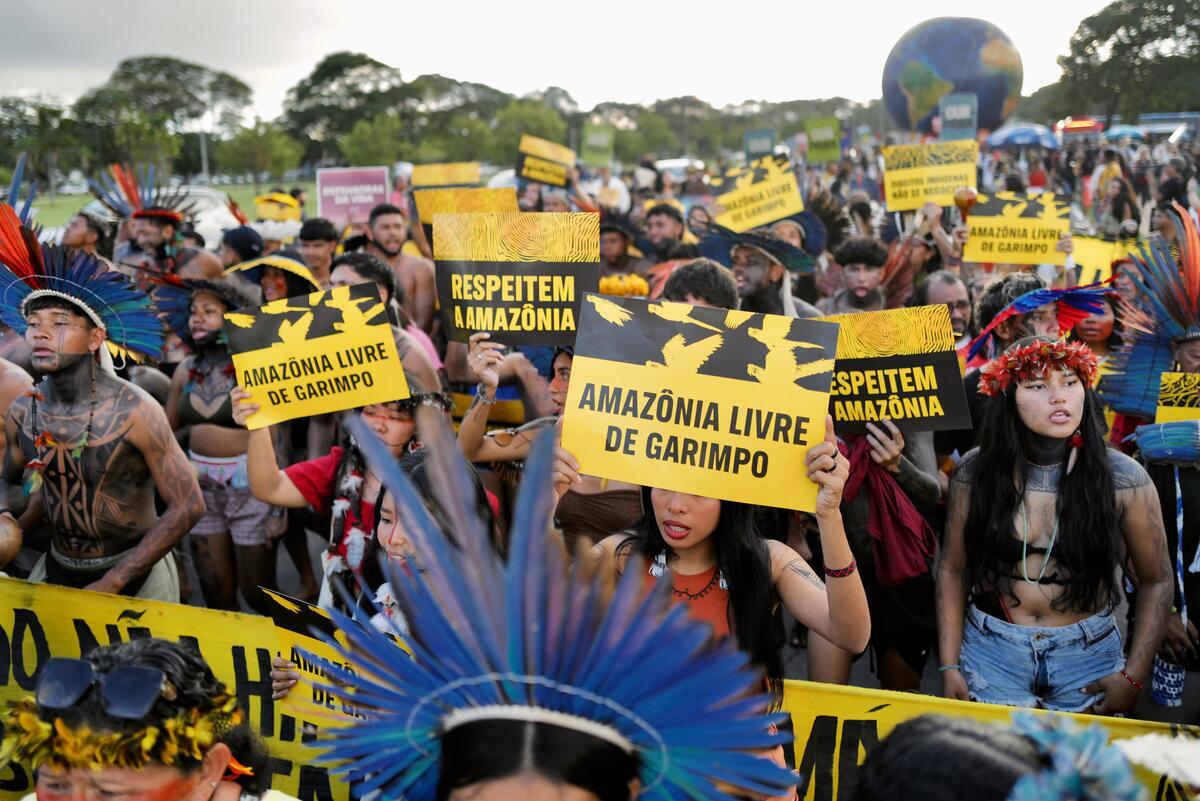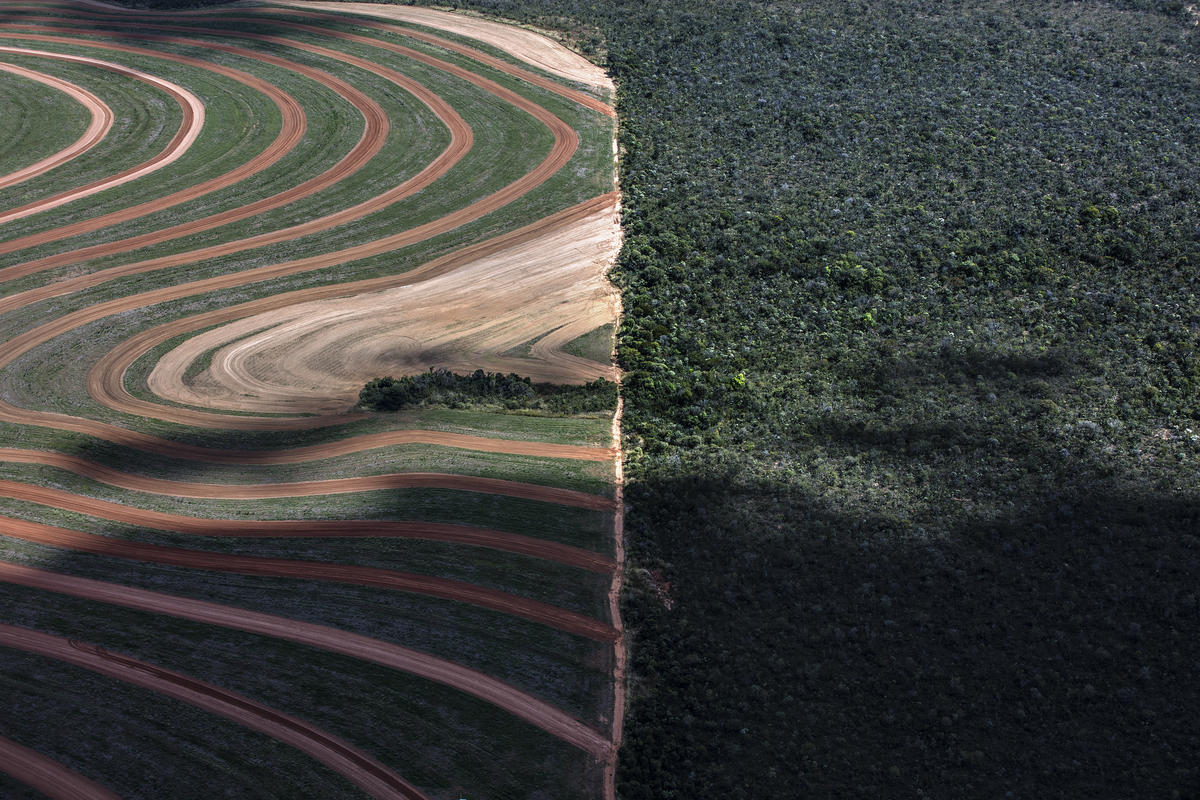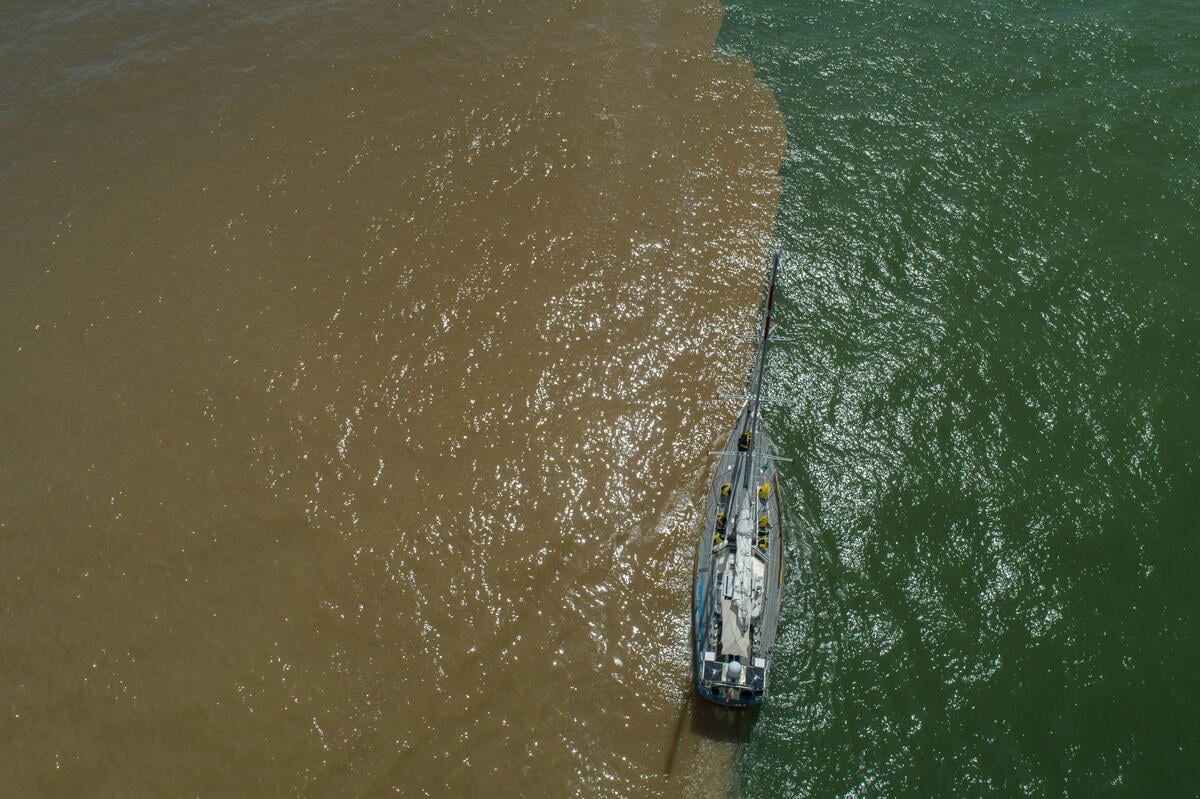This August, as we highlight and celebrate Indigenous Peoples Month, we are fortunate to have three powerful messages of defiance and hope from the three great tropical forests of the world. These messages are profound in themselves, but altogether, they represent the growing transnational movement of Indigenous solidarity and leadership that can inspire and guide us all. This is a movement grounded in ancestral knowledge and shaped by a vision that extends far beyond the present moment.
As pessimism dampens our collective sights, we can and must turn to such perspectives — perspectives based in a longer history and the deepest values of kinship and community. As the illogic of capitalism and colonialism fails everyone but the elite, we must learn from Indigenous ways of seeing, being, knowing, and doing.
West Papua

“If you ask me what my vision is for West Papua, in particular the land belonging to the Knasaimos Indigenous people, I will tell you that nature must be preserved for generations to come. That in hundreds of years hence, Indigenous people must still be able to enjoy our forests and rivers, and breathe fresh air, just as we can now.”
These are the words of Nabot Sreklefat, a leader and organizer among Indigenous youth in West Papua, home to the last tropical forests of Indonesia still standing.
Sreklefat speaks passionately about how his people have stood up to illegal logging, transmigration, and palm oil expansion in the Knasaimos region. But the struggle has been years in the making and often boils down to the need to win recognition of their traditional rights and territory.
Last year, “we received recognition of our customary territory from the Regent of South Sorong, after 17 years of fighting for recognition from both the regional and central governments. When we received the decree, we felt that the state had finally acknowledged us as an Indigenous people. It was a truly remarkable event.”
They now seek recognition from the central government.
Sreklefat also speaks of learning from other Indigenous groups, including the recent inaugural World Congress of Indigenous People and Local Communities of Forest Basins.
“When I returned to Knasaimos, I told our community that the struggle of Indigenous peoples isn’t just in Papua, but throughout the world. So, don’t give up. If other places have already invested heavily and are being persuaded to accept it, that’s not the case. We must be strong in protecting our forests. From that meeting, I became even more convinced that the struggle of Indigenous peoples is crucial.”
Amazonia
“Politicians must respect the Constitution—it wasn’t written overnight. It came from our struggle. Now, they’re tearing it apart with laws that destroy our sacred land. They ignore Brazil’s future. I just want them to respect our constitutional rights. Simple as that.”
Kayabi describes her village on the banks of the Rio dos Peixes, where families grow their own food (bananas, yams, beans) in community gardens. Yet this idyllic home comes with a history of displacement and violence. Her community were forced to leave their homeland in Batelão to avoid being killed by cattle ranchers. Then her own mother was severely abused in Utiariti, a catechism center, before being forced to marry.
From such deep suffering, Kayabi has forged a life of service and learning, earning a Master’s degree in Education to become a teacher and successfully bringing high school education to her territory. She now directs her efforts to coordinating with COIAB (Coordination of Indigenous Organizations of the Brazilian Amazon), the largest Indigenous organization in the Amazon, and traveling around the world to advocate for Indigenous peoples.
Congo Basin
“My tribe, the Tshwa, has lived in harmony with the forest for generations. We know its plants, its spirits, its secrets. And yet, in the minds of many decision-makers, we are still seen as ‘sub-citizens,’ obstacles to development, shadows in the trees.”
These words come from Valentin Engobo Mufia, a father and leader in his seventh decade of life. Hailing from Lokolama in the equatorial forest of the Democratic Republic of Congo, Mufia speaks about the importance of protecting the forest.
“The peatlands we have protected for centuries are among the most vital carbon sinks on Earth. They are a natural barrier against climate chaos. And yet, instead of listening to us, we are sidelined.”
Mufia says it’s long past the time for empty words and gestures. He shares his community’s demands:
- Clear, international legal recognition of our rights
- Direct and structured access to climate finance
- Training and education tailored to our context
- Full inclusion in all development policies and decisions
A Future Rooted in the Past

Each of the Indigenous Leaders speaks of their present struggles as well as their hope for the future. This is a hope rooted in prophecy, values, and ancient stories. Kayabi shares a particularly moving story:
“This is what I learned from Ita Mait, my people’s shaman stone. Her home is at the top of the Salto Sagrado waterfall. But one day, they stole her away. The white man who took her lost his hair, suffered pain, and died. She fell from the plane, crossed the sea, and my father-in-law, a shaman, sang every day: ‘She is coming back.’ Because, just like our culture, the stone finds its way back.”
Indigenous peoples have faced decades, if not centuries, of intersecting oppressions in every corner of the earth. Yet their resistance persists and is even growing. Through their messages, we can find hope in a wider vision and real solutions.
Tsering Lama is a Storytelling Manager with Greenpeace International.



